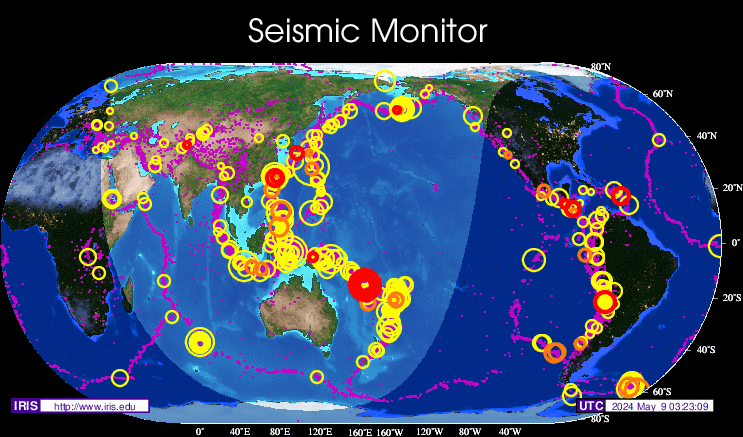Why this blog?
Until this moment I have been forced to listen while media and politicians alike have told me "what Canadians think". In all that time they never once asked.
This is just the voice of an ordinary Canadian yelling back at the radio -
"You don't speak for me."
email Kate
Goes to a private
mailserver in Europe.
I can't answer or use every tip, but all are appreciated!


Katewerk Art
Support SDA
Paypal:
Etransfers:
katewerk(at)sasktel.net
Not a registered charity.
I cannot issue tax receipts
Favourites/Resources
Instapundit
The Federalist
Powerline Blog
Babylon Bee
American Thinker
Legal Insurrection
Mark Steyn
American Greatness
Google Newspaper Archive
Pipeline Online
David Thompson
Podcasts
Steve Bannon's War Room
Scott Adams
Dark Horse
Michael Malice
Timcast
@Social
@Andy Ngo
@Cernovich
@Jack Posobeic
@IanMilesCheong
@AlinaChan
@YuriDeigin
@GlenGreenwald
@MattTaibbi
Support Our Advertisers

Sweetwater

Polar Bear Evolution

Email the Author

Pilgrim's Progress

How Not To Become A Millenial

Trump The Establishment
Wind Rain Temp

Seismic Map

What They Say About SDA
"Smalldeadanimals doesn't speak for the people of Saskatchewan" - Former Sask Premier Lorne Calvert
"I got so much traffic after your post my web host asked me to buy a larger traffic allowance." - Dr.Ross McKitrick
Holy hell, woman. When you send someone traffic, you send someone TRAFFIC.My hosting provider thought I was being DDoSed. - Sean McCormick
"The New York Times link to me yesterday [...] generated one-fifth of the traffic I normally get from a link from Small Dead Animals." - Kathy Shaidle
"You may be a nasty right winger, but you're not nasty all the time!" - Warren Kinsella
"Go back to collecting your welfare livelihood. - "Michael E. Zilkowsky
AND….I think Robert Zimmerman released Like a Rolling Stone in 1965
And today, the government can’t even launch a website.
Gotta love NASA and the huge money pit it turned into. I still maintain the Apollo 11 landing was the pinnacle of NASA’s achievements. Everything else has a distinctive ‘yeah so what’ element about it. The only thing that will be remembered of the shuttle program will be their failures. The only thing that will be remembered about the space station is the light show it will put on once it re-enters the atmosphere.
Yeah popular subject….
Did they or didn’t they….and what did they do without telling us….
I am positive of one thing….Admitting to seeing a UFO or BIGFOOT will impair yer credibility……..
Crazy conspiracist gets Buzzed. https://www.youtube.com/watch?v=1wcrkxOgzhU&feature=youtu.be
Agreed Misanthrope.
That was then, and this is now.
Then men walked on the moon.
Now we have pajama boy.
There is a Saturn V rocket (the one that launched Apollo 11) on display in the Johnson Space Center in Houston. It is an impressive sight, and well worth the visit for that alone. As I walked from one end to the other (it is laying on its side), I wondered how it was possible for that massive thing to even lift off the ground, never mind leave earth. It reinforced a deep respect for the engineers on the space program.
Wow. Remember being woken up in the middle of the night(well,middle to a 9 yr old)to watch this on an old B/W 10″ RCA TV. And how far have we advanced since then?
Those who do not know history,are doomed to repeat it.But in this case how far could we have gone?
Watching this makes one wistful for the times science was about discovery (or at least doing cool things), not about “consensus”.
(sigh)
In my opinion that was the high point of Western civilization. Its been in free-fall since Carter came to power. Now its at the point of collapse. The Buzzards are gathering for a feast.
NASA’s Obama-appointed chief Charles Bolden:
“When I became the NASA administrator, (President Obama) charged me with three things,” Bolden said in the interview which aired last week. “One, he wanted me to help re-inspire children to want to get into science and math; he wanted me to expand our international relationships; and third, and perhaps foremost, he wanted me to find a way to reach out to the Muslim world and engage much more with dominantly Muslim nations to help them feel good about their historic contribution to science, math and engineering.”
Bolden is also African American….just sayin’…
I remember the day well. I watched the landing on the crew room TV and then picked up my kit and walked out to the waiting C-47. Somewhat of a generation gap!
The Brown Clown and the 47% (and rising!) have made sure that this will never happen again in our lifetimes.
I remember getting out of bed at 6:00 AM in the middle of the summer school break to watch the launch. Sadly I don’t think an event of this magnitude will happen again in my lifetime. Not with a vacationing, golfing, empty suit celebrity in the White House who is more concerned about his next photo op and tee of time than with mankind’s potential for greatness.
Just think. In not too many more years, there will be no living man who has set foot on the moon.
45 years ago the moon landing was the high point of my life at that time. I naively assumed that I’ve be living on the moon or mars now whereas right now, as misanthrope so aptly notes, the current US government can’t even launch a web site.
The 1960’s were a time of incredible progress and a can-do attitude. There was none of the bureaucratic regulation that exists today. Have been reorganizing my shop this weekend and was in awe at the CDC6x00 series modules that I have as souvenirs that in the late 1960’s still used transistors (the tiniest I’ve ever seen as discrete components) and the very precisely made core memory modules that were assembled by Mexican weavers. Every success built upon the other and now I have a quad core CPU running at 2 GHz with a GPU and 2 Gb of RAM strapped to my belt. This supercomputer is, for some curious reason which I’ll never fathom, called a “cell phone”.
Maybe historians will at some point determine when the culture which felt it could do anything turned on itself and chose to focus on inanities. The USSA is a lost cause and the only question now is whether it will become a protectorate of Russia or the Chicoms. Regardless of the totalitarian aspirations of Putin, at least the Russians still have that pioneering spirit in science and technology that the former US used to have. The next moon walk is going to either be a Russian or Chicom project. At least Russian is easier for me to learn fluently so I’m betting on the Russians.
Even more mysterious than the decline of the US space program is how a totally technical post of mine ended up being caught by the spam filter.
when the Arrow was scrapped many of the great minds that built it went to work for NASA, Canada c should be proud of it’s contribution!!
Loki, one small key stroke for man, one huge leap into the internet abyss for mankind:-)))
It’s a tragedy, Robert. It reminds us of what we once were and no longer are. And why? Remember the hysterical opposition to the Gallileo and Cassini probes to Jupiter and Saturn? The logical and inevitable end of progressive liberalism is a constant diminishing of our curiosity, creativity, ambition and achievement, as individuals and as nations. There’s a direct line of intellectual descent from Vasco de Gama to the Apollo astronauts. And then it all came crashing to an end.
Apollo wasn’t about the moon. Apollo was about the Cold War.
After the fall of Berlin, both Russia and America each got a group of very good German engineers, who were all immediately put to work developing military hardware, in particular rockets. Both teams had the same goal: to be able to deliver nuclear warheads to the enemy via rocket. And both sides had to test their rocket systems somehow, without actually triggering a nuclear war.
That’s why Sputnik was such a shock. Even though it was only a transmitter emitting a carrier signal, it represented a potential nuclear warhead flying overhead. Space had suddenly become a strategic battleground in the Cold War. The Russians followed that up with more orbital launches including the dog Laika. The Americans were playing catch-up and blowing up rockets on the pad. Then the Russians put not only put Yuri Gagarin into space, they put him in orbit.
Think the Joint Chiefs of Staff were freaked out? You betcha. The bugs were getting ironed out, and the US was catching up with Shepard and Glenn, but it wasn’t fast enough.
Sun Tzu recommended (in The Art Of War) choosing to battle on ground favorable to the general and unfavorable to his opponent. That’s why Kennedy picked the moon in his Rice University speech. If it had looked to them like the Russians would have gotten to the moon first, then Kennedy would have picked Mars instead. The target itself didn’t matter as much as picking a target that the Americans would get to before the Russians did.
And the cost of the method of getting there didn’t matter, either. In engineering there is an old saying: “Good, Fast, Cheap – pick two.” They picked something that would work, and fast, and damn the expense. LBJ had to line a lot of rice bowls to get it done, too, spreading the pork around and setting up NASA centers all across the country in key congressional districts.
So, NASA got men to the moon and back, and a victory was declared in a propaganda battle in the Cold War. And then NASA was stuck with centers spread out all over the country, a budget, and an internal bureaucracy. It was also stuck with House Science Committee members who happened to have NASA centers in their districts who insisted that the money continue to be spent in their districts.
In short, although Apollo matched the goal set by Kennedy, the method chosen to accomplish Apollo saddled NASA with an unworkable structure that persists to this day.
There are some small rays of hope for space enthusiasts out there, however. The commercial manned space market is finally starting to come into its own. SpaceX unveiled their new manned Dragon capsule at the end of May. Orbital Sciences has a new manned capsule coming online soon. Boeing/LockMart also have a new Orion capsule. Robert Bigelow already has had two small test space stations in orbit for almost eight years, and is only waiting for two of these companies to start launching their manned capsules, after which he’ll be launching more, much larger (half the size of the ISS) space stations.
So, Americans will continue to go to space. It just won’t be NASA launching them there, it’ll be private enterprise – which is really more of an American way to go about it, anyhow.
“That’s why Sputnik was such a shock.”
Sputnik also represented real time over-the-horizon communication which allowed navies and air force assets to communicate from the other side of the world without tapping into something like the trans-Atlantic cable.
I am more shocked by the 45 years that have passed since I was a just turned 14 year old boy watching that
I was interested in engineering and did well by it, even went to school with Bob Thirsk for a spell in the early 70s. Yes. Long ago
Mercury-Gemini-Apollo
I watched them all and dreamt about what it would mean to humanity. As kids my buddy and I laid in bed and fantasized about being astronauts, doing great things. My buddy now lives about 30 minutes from Cape Canaveral and watched a lot of the launches.
A couple of Canadian kids who dreamt of bigger things than themselves. It might have been a Cold War initiative as Ed suggests but it sure gave me a vision of what mankind could do and where we could go. I am older but my vision is not as enthusiastic as it was. Have people really changed that much in 50 years?
To be honest the reason the space program regressed from lunar exploration to shuttles and stations is because we discovered there is nothing on the moon. Having expended the nation’s finances we discover – nothing. Like we are rapidly discovering with the space station. Huge expenditures with no return. The fact is that until we develop a drive system that works far more efficiently than chemical rockets further space exploration is pointless.
I was actually at a presentation in Regina a few years ago on the backend of a Williston basin conference where they had a plan for mining the regolith on the moon
looked super expensive even without cost overruns.